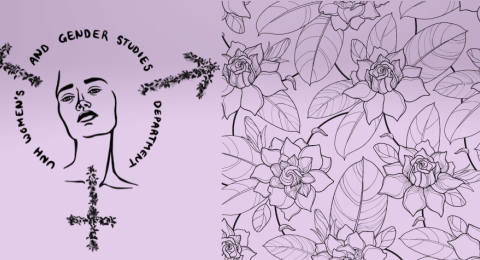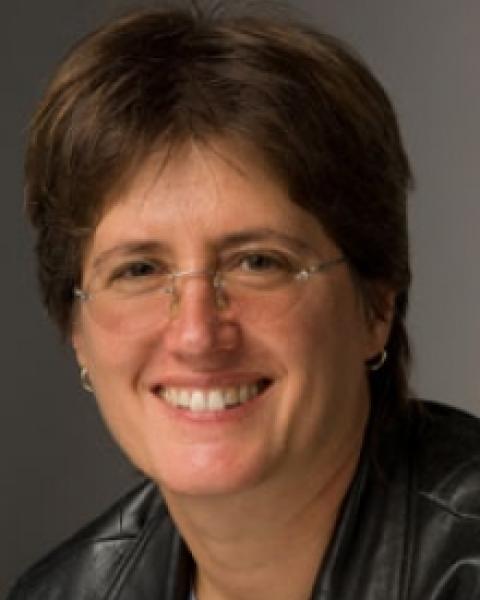The Women’s and Gender Studies major at UNH explores gender roles, identity, and social justice, examining women's diverse experiences across cultures and history. This interdisciplinary degree program draws on areas including sociology, history and popular culture. As a relatively small department within the College of Liberal Arts, this program offers a supportive community, with opportunities for internships and activism. The program combines rigorous academics with practical application, allowing for a tailored course of study while providing excellent advising and mentoring for career or graduate school preparation.
What is women’s and gender studies?
In the women’s and gender studies degree program, you’ll explore basic questions about gender roles, gender identity and social justice while examining the diverse experiences of women in various cultures and historical eras. You’ll study the intersection of gender with topics that range from gaming and sports to diversity and activism. This interdisciplinary degree program draws on areas including sociology, history and popular culture.
Why study women’s and gender studies at UNH?
As a relatively small department in the College of Liberal Arts, we’ll provide you with a sense of community and opportunities to contribute directly to social justice, including through internships at innovative organizations both on and off campus. In a rigorous academic environment, our women’s and gender studies degree offers you a springboard for activism. You will benefit from a structured yet flexible undergraduate program on cutting-edge subjects that bridges theory and applied studies. Your course of study will be tailored to your interests. Additionally, you’ll receive excellent advising and mentoring to help you with career or graduate school preparation.
Potential careers
- Arts
- Business and industry
- Education
- Government and non-governmental organizations
- Healthcare
- Human services
- Journalism
- Law
- Writing
Curriculum & Requirements
Women's and gender studies provides students with an understanding of the status of women in various cultures and historical eras, in the nexus of race, class, sexuality, religious and disability studies. Students learn the use of gender as a category of analysis and increase their knowledge of women's contributions to many fields. Women's and gender studies courses offer students critical perspectives on such basic questions of the social order as assumptions about gender roles and gender identity.
As a relatively small department in the College of Liberal Arts, we provide students with a sense of community and opportunities to contribute directly to changing the campus climate. In a rigorous academic environment, women's and gender studies offers students a springboard for activism. Our internship program enables students to gain first-hand work experience across many fields.
A major in women's and gender studies prepares students for careers where the changing roles of women are having a perceptible impact. Women's and gender studies graduates go on to law school and graduate school in a variety of disciplines. Some have taken positions with social change or family service agencies, while others have found work in such fields as health care, journalism, education, human rights, social and environmental justice, and the arts.
Students who wish to major in women's and gender studies should consult with the department chair or coordinator.
The course sequence for WGS majors will vary depending on when the student declares the major. A sample course sequence for primary majors is below. Students who declare WGS as a secondary major may follow a different course sequence.
| First Year | Credits | |
|---|---|---|
| ENGL 401 | First-Year Writing | 4 |
| Physical or Biological Science Discovery requirement (no lab) | 4 | |
| Quantitative Reasoning Discovery requirement | 4 | |
| WGS 401W or WGS 405 | Introduction to Women's Studies or Gender, Power and Privilege | 4 |
| WGS 505 | Survey in Women's Studies | 4 |
| COLA foreign language requirement (depending on proficiency an additional course may be needed) | 4 | |
| Additional foreign language course (if needed) or Elective | 4 | |
| Elective | 4 | |
| Credits | 32 | |
| Second Year | ||
| Consider including experiential learning or study abroad opportunities in your second or third year. | ||
| Three (3) courses approved as WGS elective coursework | 12 | |
| WGS 632W | Feminist Thought | 4 |
| Physical or Biological Science Discovery requirement (with lab) | 4 | |
| Humanities or Social Science Discovery requirement | 4 | |
| Two (2) electives (for minor or second major) | 8 | |
| Credits | 32 | |
| Third Year | ||
| Consider including experiential learning or study abroad opportunities in your second or third year. | ||
| WGS 798W | Colloquium | 4 |
| Two (2) courses at the 600-level or above approved as WGS elective coursework | 8 | |
| World Cultures Discovery requirement | 4 | |
| Four (4) electives (for minor or second major) | 16 | |
| Credits | 32 | |
| Fourth Year | ||
| WGS Capstone: WGS 798 or WGS 799H | 4 | |
| Second Major Capstone (if applicable) or elective | 4 | |
| Two (2) Discovery courses (if applicable) or electives | 8 | |
| Four (4) electives (for minor or second major) | 16 | |
| Credits | 32 | |
| Total Credits | 128 | |
Degree Requirements
All Major, Option and Elective Requirements as indicated.
*Major GPA requirements as indicated.
Major Requirements
The Women's and Gender Studies (WGS) major requires students to complete 40 credits of major-approved coursework with grades of C- or better and an overall grade point average in major courses of 2.00 or higher.
| Code | Title | Credits |
|---|---|---|
| Required Courses | ||
| WGS 401W | Introduction to Women's Studies | 4 |
| or WGS 405 | Gender, Power and Privilege | |
| WGS 632W | Feminist Thought | 4 |
| Discovery Program Capstone | ||
| WGS 798W | Colloquium | 4 |
| or WGS 799H | Honors Thesis | |
| WGS-Approved Electives | ||
| Select seven (7) courses approved for the WGS major as elective coursework from the list below. | 28 | |
| Total Credits | 40 | |
WGS-Approved Electives
Select seven (7) elective courses chosen in consultation with a WGS academic advisor.
- No more than one (1) course at the 400-level
- At least three (3) courses at the 600-level or above
- At least two (2) WGS courses
| Code | Title | Credits |
|---|---|---|
| WGS-Approved Electives | ||
| WGS Courses (select at least 2) | ||
| WGS 444A | Race Matters | 4 |
| WGS 505 | Survey in Women's Studies | 4 |
| WGS 510 | Framing Feminism: Gender Politics in Film | 4 |
| WGS 795 | Independent Study | 1-4 |
| WGS 796 | Advanced Topics | 4 |
| WGS 797 | Internship | 4 |
| WGS 798W | Colloquium | 4 |
| Additional courses approved for the WGS major (select no more than 5) | ||
| ANTH 525 | Anthropology of the Body: Fat, Fitness and Form | 4 |
| ANTH 625 | Sexuality in Cross-Cultural Perspective | 4 |
| ANTH 685 | Gender, Sexuality and HIV/AIDS in Africa | 4 |
| ANTH 750 | Islam and Gender: Gendered Lives of Muslims | 4 |
| CLAS 550A | Identities and Difference in the Ancient World: Greek and Roman Women | 4 |
| CMN 567 | Gender, Race, and Class in the Media | 4 |
| CMN 614 | Gender, Race and Technology | 4 |
| CMN 685 | Gendered Rhetorics | 4 |
| ENGL 575 | Sex and Sensibility: The Rise of Chick Lit | 4 |
| ENGL 585 | Introduction to Women in Literature | 4 |
| ENGL 728 | Language and Gender | 4 |
| ENGL 778 | Race and Gender in Film and Popular Culture | 4 |
| HIST 565 | Women in Modern Europe | 4 |
| HIST 665 | Themes in Women's History | 4 |
| INCO 505A | Becoming a Problem Solver | 4 |
| INCO 505I | Internship: Semester in the City (Boston) or Semester for Impact (NH) | 8 |
| INCO 682A | The Washington Center Career Readiness Seminar | 4 |
| INCO 682I | Washington DC Internship | 4 or 8 |
| ITAL 444B | Mamma Mia! Italian Motherhood from the Virgin Mary to Carmela Soprano | 4 |
| JUST 410 | Sexual Harassment and Rape Prevention (SHARPP) Peer Advocacy | 2-4 |
| JUST 520 | Girls Gone Bad: Delinquent Girls in Cultural Context | 4 |
| NURS 450 | Making Babies: Technology, Nature, and Social Context | 4 |
| NURS 621 | Maternal and Newborn Nursing | 1-2 |
| NURS 621C | Maternal Newborn Nurs Clin | 2 |
| PHIL 419 | Race, Gender and Social Justice | 4 |
| PHIL 510 | Philosophy and Feminism | 4 |
| POLT 511 | Women & Politics | 4 |
| POLT 721 | Feminist Political Theory | 4 |
| SOC 570 | Sexual Behavior | 4 |
| SW 715 | Affirming Practice with Lesbian, Gay, Bisexual, Transgender, Queer+ People | 4 |
Women's and Gender Studies majors may use two major-required courses to satisfy two Discovery category requirements. First and second majors may double count no more than two courses between the WGS major and another major or minor.
Candidates for a degree must satisfy all of the University Discovery Program requirements in addition to satisfying the requirements of each individual major program. Bachelor of arts candidates must also satisfy the foreign language proficiency requirement. ASL: COMM 401 American Sign Language I and COMM 502 American Sign Language II may be used to satisfy the language competency requirement.
Program Learning Outcomes
- Demonstrate the ability to think critically about categories of difference—including gender, sexuality, race, nation, class, religion--and explore the relationship between inequality and those categories of difference.
- Demonstrate understanding of how difference influences the values, beliefs, and experiences of individuals and groups in across historical, cultural, political and geographic contexts.
- Define and apply central concepts in Women’s and Gender Studies and Queer Studies, including but not limited to sexuality, power, privilege, inequality, justice, violence, the body, reproductive health, and intersectionality (i.e., interlocking and simultaneous forms of oppression).
- Know the history of feminist thought and production, especially as it has been inflected by cultural difference.
- Demonstrate self-reflectiveness, cultural awareness, critical analysis, and the ability to effect personal and community change.
- Write and speak clearly, be able to construct persuasive arguments based on their experiences, the experiences of others, and on scholarship; be able to conduct research using feminist methodologies.









